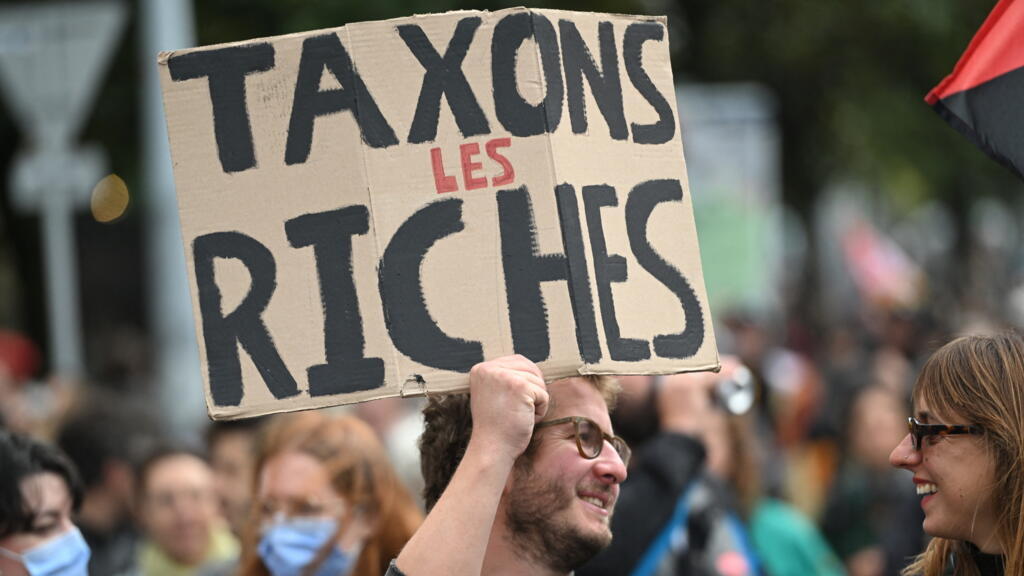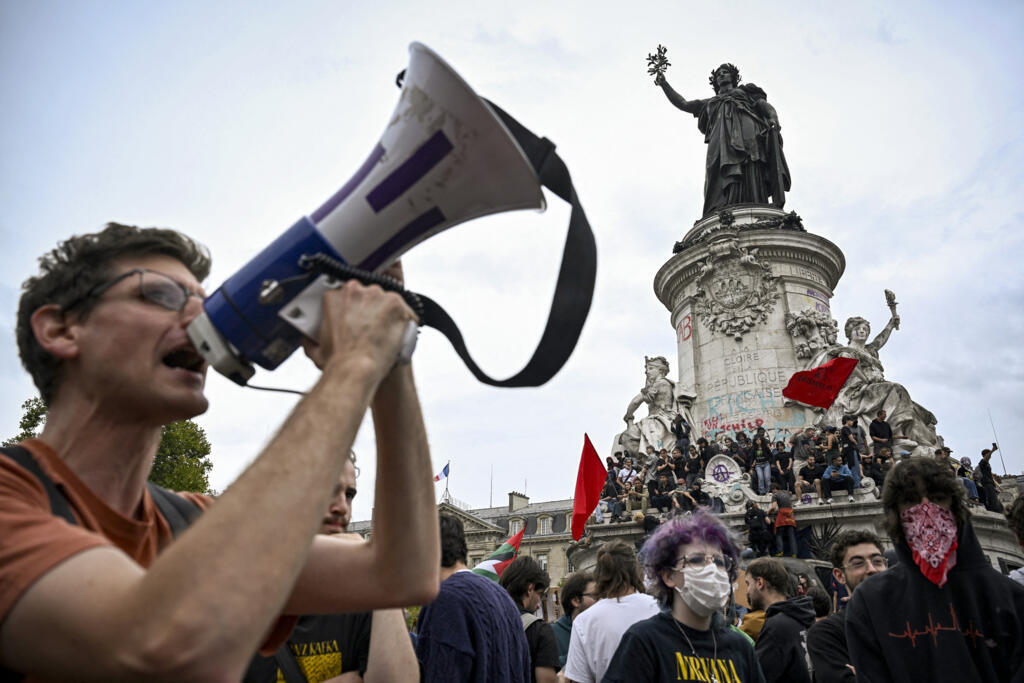
France is bracing on Thursday for its biggest strikes and demonstrations in two years as unions rally workers across all sectors to protest what they call "brutal" cuts looming in the 2026 budget. RFI explains what's behind the day of disruption.
Public transport is expected to be worst affected, especially in and around Paris. Unions have warned as many as 90 percent of the capital's Metro drivers could join the strike.
Other workers, from teachers to truck drivers to pharmacists, are also set to walk out, as unions issue a cross-sector call to mobilise for the first time since their 2023 battle over the pension reform.
Authorities predict more than 800,000 people will demonstrate around the country, an Interior Ministry source told FranceInfo.
The immediate target is the pending 2026 budget, which aims to save the heavily indebted country some €28 billion by shedding public-sector jobs, freezing pensions and capping benefits.
In a joint statement issued after the measures were unveiled in July, France's biggest unions said the cuts were of "unprecedented brutality".
This week's strike is their effort to overturn the budget plan – but not only. A host of other grievances, from lingering discontent over pensions to anger at the latest political turmoil, are also drawing people onto the streets.
Political reset?
The strike comes the week after France got its third prime minister in a year.
François Bayrou, who drew up the budget proposals during his nine months in office, fell in a confidence vote after allies in parliament dropped him over the plans.
His successor Sébastien Lecornu, a close ally of President Emmanuel Macron, has already promised to scrap one of the most unpopular measures – the proposal to get rid of two of France's public holidays. But he will have to make comparable savings elsewhere, he warned.
Lecornu has not yet offered new budget proposals, having pledged to hold talks with opposition parties and unions in search of compromise.
He has promised "substantive changes", though his opponents remain sceptical.
New PM Lecornu scraps holiday cuts as he seeks fresh start for France’s budget
'Fiscal justice'
The unions' demands include what they call "fiscal justice": namely, more taxes on the highest earners.
Left-wing lawmakers also want a tax on the super-rich – in the form of the so-called "Zucman tax", floated by economist Gabriel Zucman, that would impose a two percent levy on individuals worth more than €100 million.
The move seems like a hard sell for Macron's pro-business centrists – the president scrapped a previous wealth tax and has long been known as "the president of the rich".
But amid cost-of-living crises and rising poverty, polls suggest there's public appetite for it across the political spectrum.
One survey in July found that 74 percent of respondents backed the idea of taxing the super-rich. Another poll conducted this month for the Socialist Party found 86 percent were in favour of a Zucman tax, including most people who voted right-wing.
Charity warns one in three French people struggle to afford three meals a day
Out of step
This is not the first sign that the country's political leaders are out of step with voters.
Macron's Renaissance party and its allies have not held a majority in parliament since mid-2022. And since the president triggered snap elections in summer 2024, his grouping has found itself outweighed by a broad alliance on the left and challenged by the National Rally on the far right.
Yet Macron has appointed successive prime ministers from within his own centre-right circle rather than power-sharing with the left or calling fresh elections, leading to frustration among his political opponents and a sense of disenfranchisement among voters.
Some of that anger spilled into protests last week under the slogan "Block Everything".
Growing out of an online movement, the protests drew an estimated 200,000 to 250,000 people across France – not necessarily to make formal demands, primarily to vent anger with the status quo.

Stalemate
Meanwhile none of Macron's picks has proved able to work with the hung parliament long enough to finalise a budget bill, which has to pass by the end of the year.
Lecornu's latest round of talks with the opposition on Wednesday did not result in any of the parties committing to give him the backing he needs.
"I told him that if he didn't want to find himself in the graveyard of prime ministers, which is already overflowing, he had to show his commitment and take strong and immediate action," Sophie Binet, head of the hardline CGT union, said after earlier talks with the premier.
"We don't need a prime minister to take notes, we need a prime minister to provide answers."
Who is 'political animal' Sébastien Lecornu, France's latest prime minister?
Uniting grievances
The unions' demands go beyond scrapping the proposed budget cuts, to pursuing measures to address inequality and overturning the 2023 pension reform.
The strike is also an opportunity to spotlight sector-specific complaints.
Journalists at public media companies are striking partly against a plan to merge state-owned broadcasters, while pharmacists are protesting a cut in the rebate on generic drugs.
"The 18th of September could bring all the grievances together, a way of building on the momentum from 10 September," Salim Khamallah, a CGT representative at public electricity distribution company Enedis, told Le Monde.
Endorsed by unions and political parties, Thursday's protests look to be far bigger than last week's demonstrations, and comparable to the pension strikes of 2023.
Whether they mark the start of a longer battle, as those protests did, will depend on the government's response.







